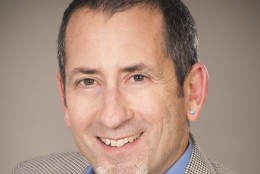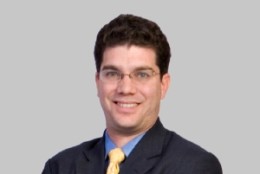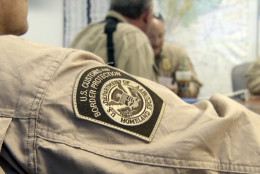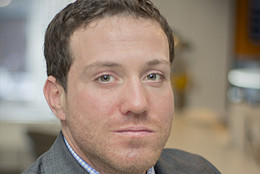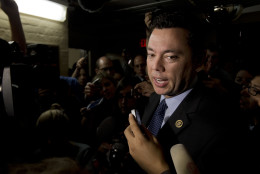Tom Temin
-
Funny thing about small business rules. If you say you're small, you normally have to be small. If you tell federal customers you'll do your own work yourself, you've got to do the work yourself. So why do so many contractors try to get around these basics? Joseph Petrillo, procurement attorney with Petrillo and Powell, joins Federal Drive with Tom Temin to describe a new case that proves the old rule.
May 05, 2016 -
In Thursday's Federal Headlines, executive branch agencies hired 6,000 more veterans in fiscal 2015 than they did the year before. Nearly 32 percent of new hires to the federal workforce in 2015 were veterans.
May 05, 2016 -
False stories harm the reputations of both the government and the contractor. Even whole programs.
May 04, 2016 -
Just because it's Public Service Recognition Week, that doesn't mean federal managers' appreciation for their employees should stop on Friday. Mallory Barg Bulman, research director at the Partnership for Public Service, shares some ideas on how to keep the love going on Federal Drive with Tom Temin.
May 04, 2016 -
No contractor wants to hire felons to work on federal contracts. So, they use background checks as part of the hiring process. But that can get you into hot water too if the company policy ends up discriminating against people in legally protected categories. Kenneth Rosenberg, a partner at Fox Rothschild, sheds some light on this subject on Federal Drive with Tom Temin.
May 04, 2016 -
Richard Spires, former Homeland Security Department chief information officer and CEO of Learning Tree International, and Alan Balutis, former Commerce Department CIO and senior director and distinguished fellow at Cisco Systems, discuss what challenges are ahead in the upcoming presidential transition on Federal Drive with Tom Temin.
May 04, 2016 -
The Partnership for Public Service has announced 32 federal employees as finalists for this year's Service to America Medal awards as part of Public Service Recognition Week.
May 04, 2016 -
If someone is going to be unqualified for a job for a criminal past, why should hiring entities wait until down the line and waste everybody’s time?
May 03, 2016 -
The Postal Service has several big indefinite delivery-indefinite quantity contracts worth billions, but it doesn't always follow the rules. Lucine Willis, deputy director for supply management and facilities in USPS' Office of Inspector General, fills in the all details on Federal Drive with Tom Temin.
May 03, 2016 -
In Congress, a slimmed-down legislative schedule is par for the course during an election year. But this year’s version is especially slim. The calendar calls for lawmakers to be out of session for a full eight weeks this summer then off again for six weeks just before Election Day. Federal Drive with Tom Temin talks about the rest of the year’s calendar and what’s likely to get done with David Hawkings, senior editor at Roll Call.
May 03, 2016 -
A bill that prevents federal applicants who commit some sort of misconduct before or during the background check process from getting a security clearance is back on the table in the Senate.
May 03, 2016 -
Customs and Border Protection is streamlining its services to businesses by centralizing its import operations in 10 Centers of Excellence and Expertise.
May 02, 2016 -
The Centers for Medicare and Medicaid Services has had some success with a new model of paying health care providers. Rather than paying them for how many services they render, it's paying them according to health care outcomes and how well they coordinate among one another over individual patients. Dr. Paul Cordts, deputy director for health care operations at the Defense Health Agency, tells Federal Drive with Tom Temin how DHA could benefit from the same model.
May 02, 2016 -
Matthew Fay, a foreign and defense policy analyst at the Niskanen Center, a libertarian think tank. tells Pentagon Solutions how proposed reforms to the Defense acquisition process are missing the target.
May 02, 2016 -
On the heels of the Senate passing the FOIA Improvement Act, House lawmakers want a new study on how agencies are meeting the current law.
May 02, 2016



